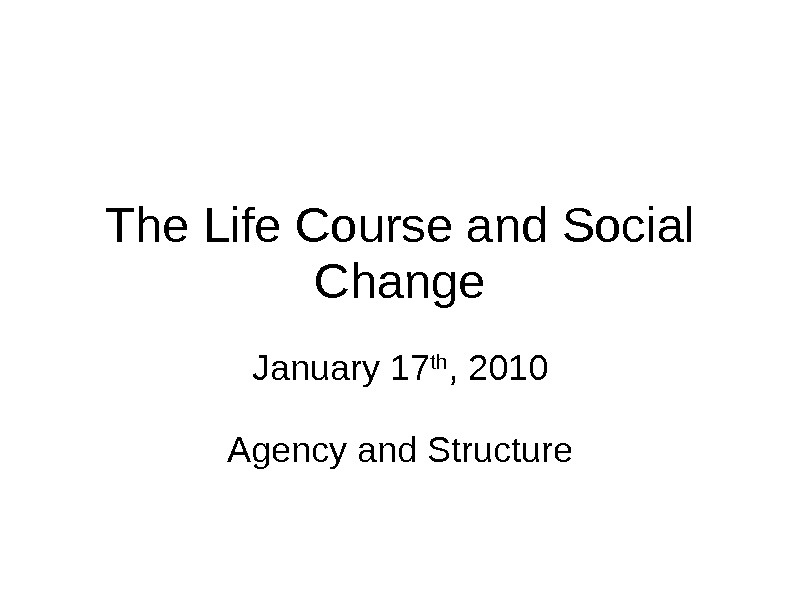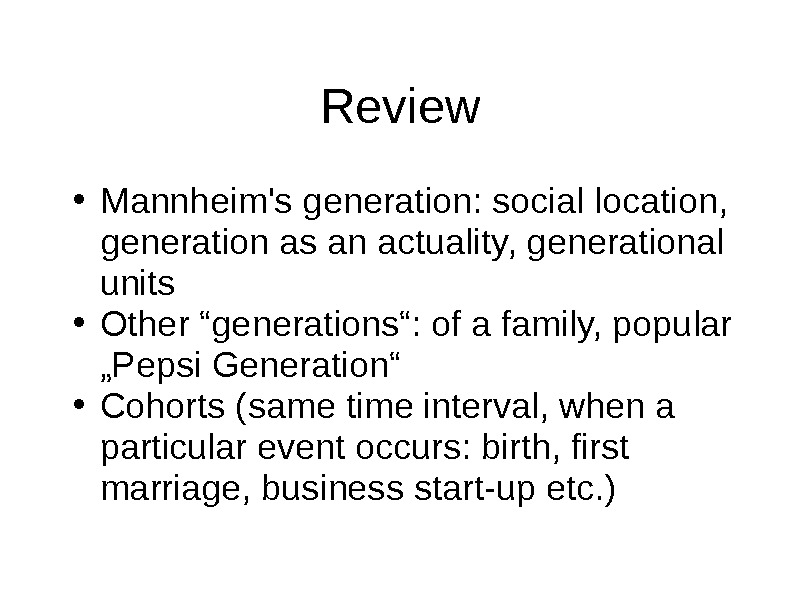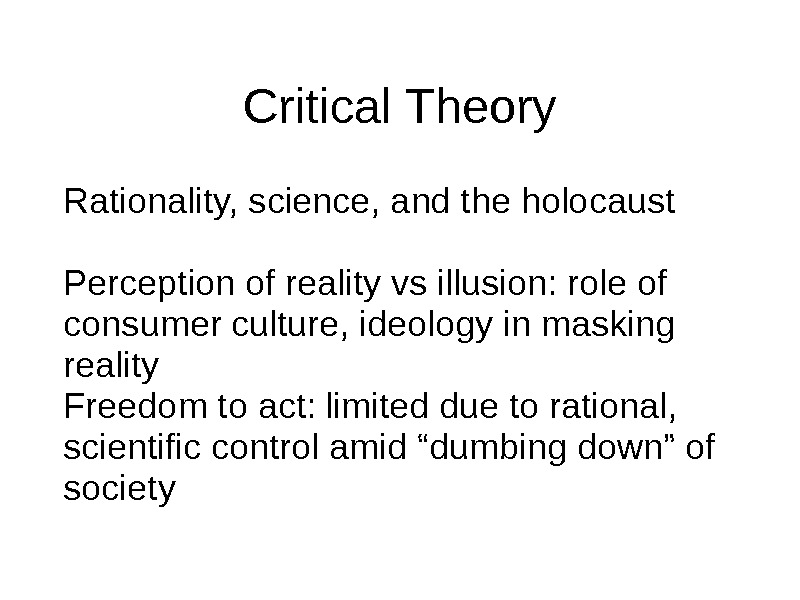The Life Course and Social Change January 17












the_life_course_and_social_change_theme_3.ppt
- Размер: 649.5 Кб
- Количество слайдов: 11
Описание презентации The Life Course and Social Change January 17 по слайдам
 The Life Course and Social Change January 17 th , 2010 Agency and Structure
The Life Course and Social Change January 17 th , 2010 Agency and Structure
 My Research Interests • Individualization, relationships, intimacy • Values • Family sociology • Economic Sociology • Social change and modernization • Urbanization • Socio-biology • Critical theory
My Research Interests • Individualization, relationships, intimacy • Values • Family sociology • Economic Sociology • Social change and modernization • Urbanization • Socio-biology • Critical theory
 Outline • Review • Determinism and Free will • Example from Popular Culture • Plato’s Allegory of the Cave • Critical Theory • Structure and Agency, Structuration, Life course policy • Seminar-tutorial: Settersten text, Agency and Structure
Outline • Review • Determinism and Free will • Example from Popular Culture • Plato’s Allegory of the Cave • Critical Theory • Structure and Agency, Structuration, Life course policy • Seminar-tutorial: Settersten text, Agency and Structure
 Review • Mannheim’s generation: social location, generation as an actuality, generational units • Other “generations“: of a family, popular „Pepsi Generation“ • Cohorts (same time interval, when a particular event occurs: birth, first marriage, business start-up etc. )
Review • Mannheim’s generation: social location, generation as an actuality, generational units • Other “generations“: of a family, popular „Pepsi Generation“ • Cohorts (same time interval, when a particular event occurs: birth, first marriage, business start-up etc. )
 Determinism vs. Free Will Free will: the ability to act, make choices, free from external constraints Determinism: events are caused, predictable (by culture, biology, laws of nature, physics, pychology, god) Moral consequences Compatibilism Illusion of will
Determinism vs. Free Will Free will: the ability to act, make choices, free from external constraints Determinism: events are caused, predictable (by culture, biology, laws of nature, physics, pychology, god) Moral consequences Compatibilism Illusion of will
 Popular culture
Popular culture
 Two issues Accurate perception of reality Freedom to act within this reality
Two issues Accurate perception of reality Freedom to act within this reality

 Critical Theory Rationality, science, and the holocaust Perception of reality vs illusion: role of consumer culture, ideology in masking reality Freedom to act: limited due to rational, scientific control amid “dumbing down” of society
Critical Theory Rationality, science, and the holocaust Perception of reality vs illusion: role of consumer culture, ideology in masking reality Freedom to act: limited due to rational, scientific control amid “dumbing down” of society
 Structure and Agency • Agency vs structure perspectives • Life course policy • Structuration; anchored in „social practices ordered across time and space“
Structure and Agency • Agency vs structure perspectives • Life course policy • Structuration; anchored in „social practices ordered across time and space“
 Readings for Next Week • Glenn 1. What examples of age, cohort and period effect do you know? 2. What data should be used for separating age, period, and cohort effects? 3. What statistical methods you would use to separate these effects? • Mc. Adams 1. How would you go about analyzing such an interview? 2. Which life course concepts would you use in your analysis? 3. Which person, other than your parents or grandparents, over 50 years of age, will you interview?
Readings for Next Week • Glenn 1. What examples of age, cohort and period effect do you know? 2. What data should be used for separating age, period, and cohort effects? 3. What statistical methods you would use to separate these effects? • Mc. Adams 1. How would you go about analyzing such an interview? 2. Which life course concepts would you use in your analysis? 3. Which person, other than your parents or grandparents, over 50 years of age, will you interview?

